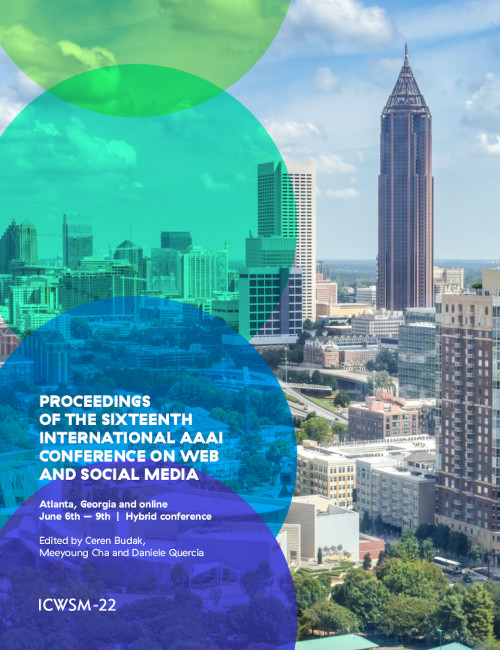Exposure Inequality in People Recommender Systems: The Long-Term Effects
DOI:
https://doi.org/10.1609/icwsm.v16i1.19284Keywords:
Trust; reputation; recommendation systems, Ranking/relevance of social media content and users, Social network analysis; communities identification; expertise and authority discoveryAbstract
People recommender systems may affect the exposure that users receive in social networking platforms, influencing attention dynamics and potentially strengthening pre-existing inequalities that disproportionately affect certain groups. In this paper we introduce a model to simulate the feedback loop created by multiple rounds of interactions between users and a link recommender in a social network. This allows us to study the long-term consequences of those particular recommendation algorithms. Our model is equipped with several parameters to control: (i) the level of homophily in the network, (ii) the relative size of the groups, (iii) the choice among several state-of-the-art link recommenders, and (iv) the choice among three different stochastic user behavior models, that decide which recommendations are accepted or rejected. Our extensive experimentation with the proposed model shows that a minority group, if homophilic enough, can get a disproportionate advantage in exposure from all link recommenders. Instead, when it is heterophilic, it gets underexposed. Moreover, while the homophily level of the minority affects the speed of the growth of the disparate exposure, the relative size of the minority affects the magnitude of the effect. Finally, link recommenders strengthen exposure inequalities at the individual level, exacerbating the“rich-get-richer” effect: this happens for both the minority and the majority class and independently of their level of homophily.Downloads
Published
2022-05-31
How to Cite
Fabbri, F., Croci, M. L., Bonchi, F., & Castillo, C. (2022). Exposure Inequality in People Recommender Systems: The Long-Term Effects. Proceedings of the International AAAI Conference on Web and Social Media, 16(1), 194-204. https://doi.org/10.1609/icwsm.v16i1.19284
Issue
Section
Full Papers

